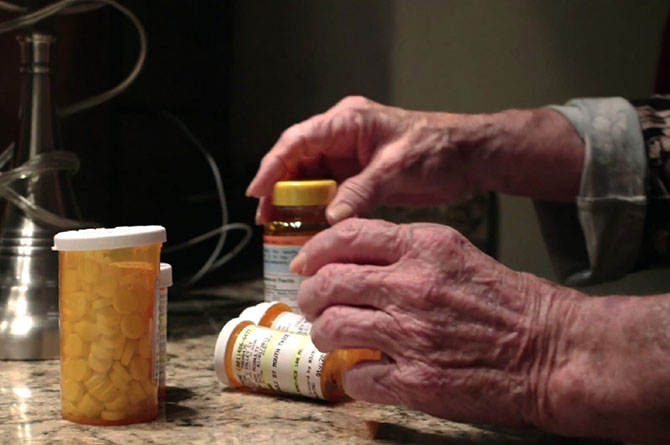
Are you suffering from aches and pains? If you are well into your 60s and beyond, then you must have experienced them. They are awful, to say the least.
But before rushing off to your doctor for a painkiller prescription, you must give it a second or third thought. Here’s why:
What are prescription painkillers:
Prescription painkillers are mostly opioids – opium-based or opium-like compounds to relieve pain, i.e., Oxycodone, Hydrocodone, Morphine, Codeine, etc.
They work by increasing the brain’s production of dopamine – the chemical responsible for creating feelings of pleasure, excitement; the Adrenalin rush.
Opioids inhibit the body’s ability to feel pain; they make you feel great (even if the source of pain still persists).
They are addictive because they force the brain to produce artificial endorphins (another feel-good chemical naturally produced by the body). When its effects wear off, and the brain cannot take up the shortfall, you will be in pain again and will be forced to ask for it and in heavier doses, too.
Current estimates show that 3 in 10 adults, between ages 57 to 85, use at least five prescription drugs – putting them at high risk for drug abuse and addiction, according to the Mental Health Services Administration (SAMSHA).
Aside from being addictive, the following are other reasons to them away.
1. It’s killing a fly with a sledgehammer:
Opioids are intended to relieve acute pain after a surgery or chronic pains like arthritis, lower back pains, or trauma pains.
Taking them for age-related aches and pains like a headache, occasional lower back pain, muscle strain, or a migraine is an overkill and risky.
Should you consult a doctor for chronic pains, ask for non-addictive drugs. If that is not possible, be sure it is pain-specific. Don’t go for a one-drug-cures-it-all approach. Chances are that it will not be as effective, forcing you to ask or more potent types.
Whatever you are prescribed with, take it per doctor’s orders. Your health will be at risk if you venture outside of its parameters.
2. Unnecessary cost:
The prices of opioids cover a wide range, depending on application and potency. Some are as low as less than $10 dollars, while others can go as high as more than $200.
They may seem cheap on a per unit basis, vis-a-vis its purpose, over the long haul, they are a huge cost item in your budget.
Bear in mind that there a lot of options to ease age-related aches and pains which are cheap or cost nothing at all. Look for them and try them out. Only when you run out of options will you think about opioids.
3. Risky to your health:
Opioids first affect the brain, making it block out the pain. But it will also make you feel sedated and dizzy putting you at risk for falls. In fact, seniors taking opioids have as much as four times the probability of suffering bone fractures than those who don’t. And 68% of those are hospitalized, and out of this number, 87% die from their injuries. – National Safety Council.
Then they affect the entire body (slowing it down at times), like the digestive system where they may experience “opioid-induced constipation.”
Other than the digestive system, opioids also affect the kidneys.
The kidney is the body’s filtration system. It filters blood circulating throughout the body, extracting liquids (disposed of as urine), and other solids (disposed of as fecal waste).
And when you grow old, it becomes so delicate and sensitive to foreign substances like alcohol and drugs.
A study done last year showed that opioid users are more likely to develop kidney failure than those who are not.
Is that the end of the ugly effects of opioids on your body? No! It can trigger dangerous and life-threatening side effects or reactions with drugs against high blood pressure, cardiovascular diseases and diabetes.
I believe in the body’s ability to heal itself (provided it is not subjected to too much abuse), and going for do-it-yourself management of minor aches and pains.
I never have a headache that lasts longer for comfort. If I do, I will just “will” it away. Though I take Tylenol before playing tennis to ease the osteoarthritis pains in both my knees, I keep away from anything stronger than that.
It is a tough call for a lot of seniors. but it can be done if you just put your mind and heart into it.
Please share with other seniors to spare them the risks of taking opioids for their aches and pains.
~oOo~